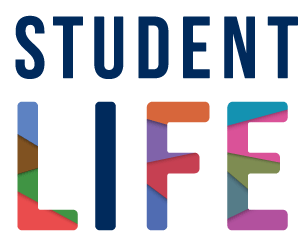There are many different types of student organizations at the University of Toronto. We’re here to help you understand the differences between these groups.
Recognized student groups
Recognized student groups (often referred to as “clubs”) are voluntary student organizations that have been granted recognition status through the Office of Student Life. Recognized student groups are autonomous organizations but must meet all requirements set out in the University’s Policy on the Recognition of Student Groups.
The leadership of recognized student groups is democratically elected from its membership in accordance with the group’s their own constitution and the University’s Policy on Open, Accessible and Democratic Autonomous Student Organizations.
The St. George campus has over 700 recognized student groups. Each of these groups contributes to the University’s intellectual, political, social and cultural diversity in their own unique way. You can find a list of recognized student groups on the Student Organization Portal.
Student societies
A student society is an autonomous student organization on whose behalf the University collects a compulsory non-academic incidental fee. Membership is automatic and determined by a student’s registration and status in a particular division or program. In the case of a residence council, membership is determined by residency in a particular University residence.
The leadership of student societies is elected from its membership in accordance with the University’s Policy on Open, Accessible and Democratic Autonomous Student Organizations and their own constitution, by-laws and/or policies.
Representative student committees
The University’s Governing Council formally recognizes five primary representative student bodies, collectively representing all U of T students:
- Association of Part-Time Undergraduate Students: All part-time undergraduate students
- Scarborough Campus Students’ Union: Full-time UTSC undergraduate students
- University of Toronto Graduate Students’ Union: All graduate students
- University of Toronto Mississauga Students’ Union: Full-time UTM undergraduate students
- University of Toronto Students’ Union: Full-time St. George undergraduate students & Toronto School of Theology students
Divisional student societies
Most colleges and faculties have one or more student societies that provides representation and/or programming and services to the students in their respective academic division. Examples of divisional student societies include the Woodsworth College Students’ Association, the Engineering Society and the Master of Information Student Council.
Residence councils
Students living in residences at Innis College, New College, University College and Woodsworth College, as well as Chestnut Residence and Graduate House, have a residence council that provides representation, programming and services. There are also residence councils at the federated colleges (St. Michael’s, Trinity & Victoria) that are recognized by their respective colleges.
Campus media
Campus media organizations such as CIUT 89.5 FM and The Varsity are recognized as student societies and provide students on U of T’s three campuses with access to community radio and campus news.
Course & program unions
Most academic programs have an affiliated course or program union that provides representation, programming and services to the students in their respective field of study.
Course and program unions are autonomous student organizations in which membership is automatic and determined by a student’s registration in a particular academic program.
Course and program unions are typically recognized by, and receive funding from, the student society aligned with their respective academic unit. For example, course and program unions representing Arts & Science programs would be recognized by the Arts & Science Students’ Union.
Examples of course and program unions include the Computer Science Students Union, the Indigenous Studies Student Union and the Graduate History Society.
Hart House clubs & committees
Hart House clubs include archery, debating, chess, photography and a range of musical pursuits from Chamber Strings to Jazz Choir, that build community among participants – students, staff, faculty, and the community at large – from a wide range of ages and abilities.
There are also ten standing Hart House committees that provide governance to various and numerous activities, programs and services offered at and by Hart House. Each of the committees have voting representation at the Hart House Board of Stewards.
Other student organizations
There are a number of other student organizations at the University of Toronto that may not fall into any of the categories listed above. This includes student groups that have not been recognized under the University’s Policy on the Recognition of Student Groups, but have been recognized by their local college or faculty. Examples include the Black Law Students Association, the Trinity College Dramatic Society and the American Sign Language Club at Woodsworth College.
This also includes community levy groups that are affiliated with, and receive funding from, various student societies, such as Bikechain, the Ontario Public Interest Research Group and the Sexual Education Centre at the University of Toronto.
-

Associated Services
Clubs Help Desk
The Clubs Help Desk provides a variety of services to recognized student organizations at the University. Learn more about Clubs Help DeskStudent Organization Portal
The Student Organization Portal is a comprehensive database of all University of Toronto recognized student organizations. Learn more about Student Organization Portal




